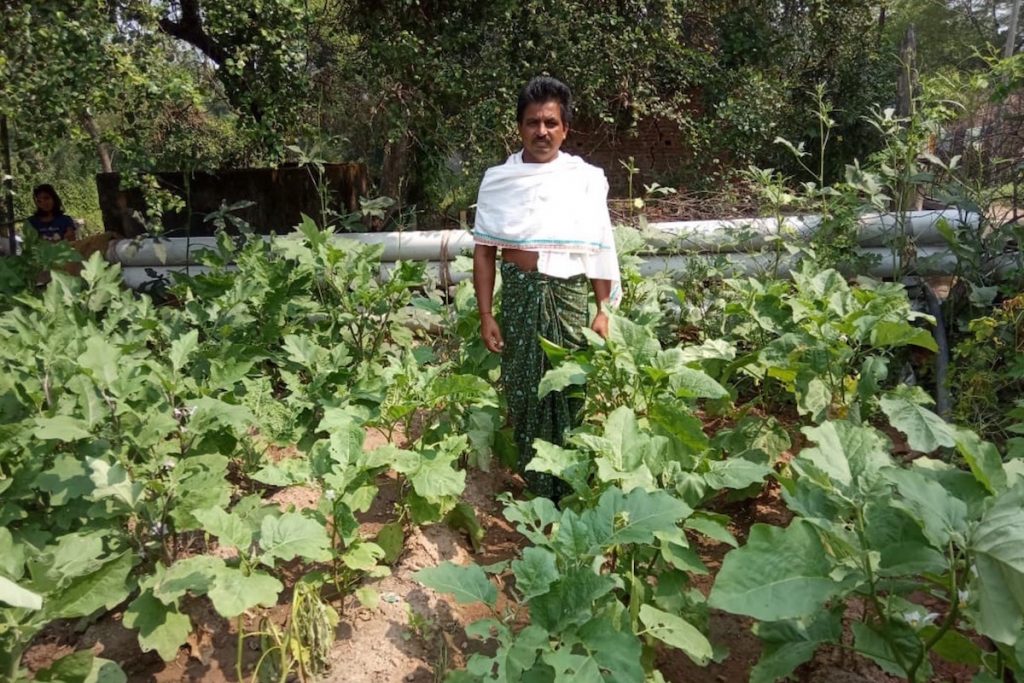It only took one night for a cyclone to wash away Ram Prasad Misra’s hopes of a profitable yield from his two-acres in eastern India’s coastal state of Odisha in 2019.
Misra vividly remembers how a sunny day turned dark heralding the cyclone that hit Ektal village and nearby areas, washing away dwellings, uprooting trees, and destroying harvest-ready crops.
The next morning when the cyclone was over, he couldn’t find any trace of his coriander or chili crops.
“Nothing was there, it was hard to believe that a farmer had toiled hard for months to grow crops,” Misra told LiCAS.news. “That year, I didn’t earn a single penny. The government authorities later provided a grant but that was too meager to even cover the basic farming costs,” he said.
The next year proved even more precarious for the farmer. The erosion of soil and a massive covering of silt from the cyclone had destroyed his field forcing the father of three to look elsewhere for a livelihood.
“My family was on the verge of starvation. No crops meant no income and with money, you cannot even think to live a life in today’s world,” he said.
Misra took up a job as a salesman at a local grocery store but it only earned him 2,500 rupees or about US$ 30 a month.
The fate of many other farmers in Misra’s village and the adjoining hamlets due to the 2019 cyclone was no better.
Small plot farmer Sadhashiv Ram in Sonepur village had a half-acre of oilseed ready for reaping when the storm struck and destroyed it all.
Ram said it wasn’t just that one cyclone that has made life hard in their coastal region where natural disasters have increasingly become more common.
“Houses can be built again but the land is destroyed and often becomes unfit for vegetation. It is an extremely precarious scenario,” Ram told LiCAS.news.
To help suffering farming communities, Caritas Germany last year joined Caritas India to launch a project that covered 28 Odisha villages to help farmers diversify and secure their operations.
Caritas spokesman Anjan Beg said farmers joining the project were trained to adopt innovative farming practices, including soil and water conservation methods, and integrated farming systems.
Misra attended a training session in June last year with other farmers.
“I was taught organic methods of farming. The seed cultivation, making of natural fertilizers and what crops should be used so that maximum yields could be expected at low costs,” Misra said.
After the training, he implemented what he learnt and managed to sow a range of crops like pumpkins, potatoes, and tomatoes.
“The yield was surprising. Methods that involved low-water consumption, fewer chemical fertilizers, and soil friendly mechanisms were profitable,” Misra said. “Earlier, my yield used to be no more than 500 kgs in total. It has increased some eight times and at a much lower cost,” he said.

Caritas India director, Father Paul Moonjely said that coastal parts of India have suffered natural disasters due to climate change.
“Storms and damaging tides have become routine,” Father Moonjely said. “Coastal erosion is relatively more vulnerable to climate change, which brings serious negative impacts on coastal regions as most people depend on farming for their livelihood,” he said.
Father Moonjely said the Caritas India partnership with Caritas Germany proved very beneficial for those from affected coastal communities who joined the program.
One them was Ram, who lost his half-acre of oilseed. He is now doing organic farming.
“The organic way of farming is turning things around. I used to earn around 100 rupees about US$ 1 a day,” Ram said.
“Now I earn three times more than that. It is because the climate adaptive methods have taught us what to sow when and how to practice safe farming,” he said.






